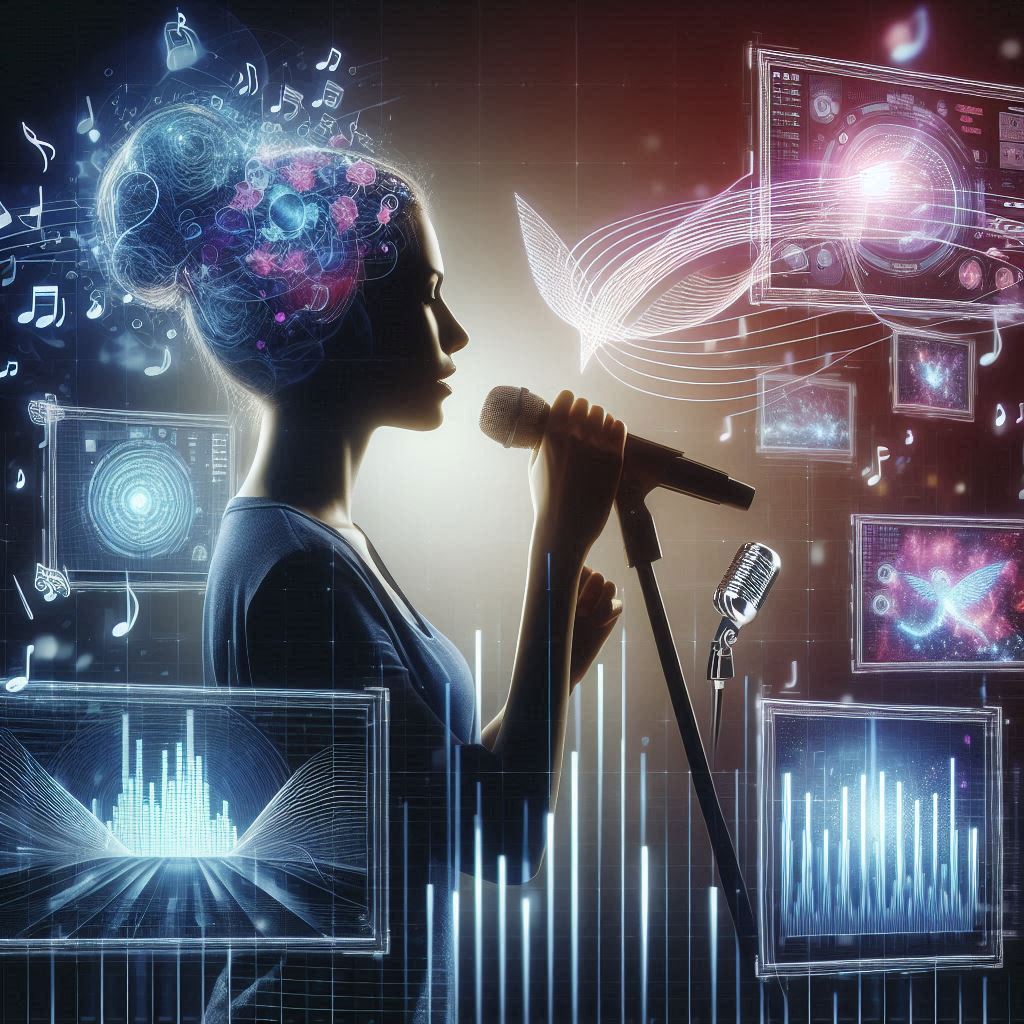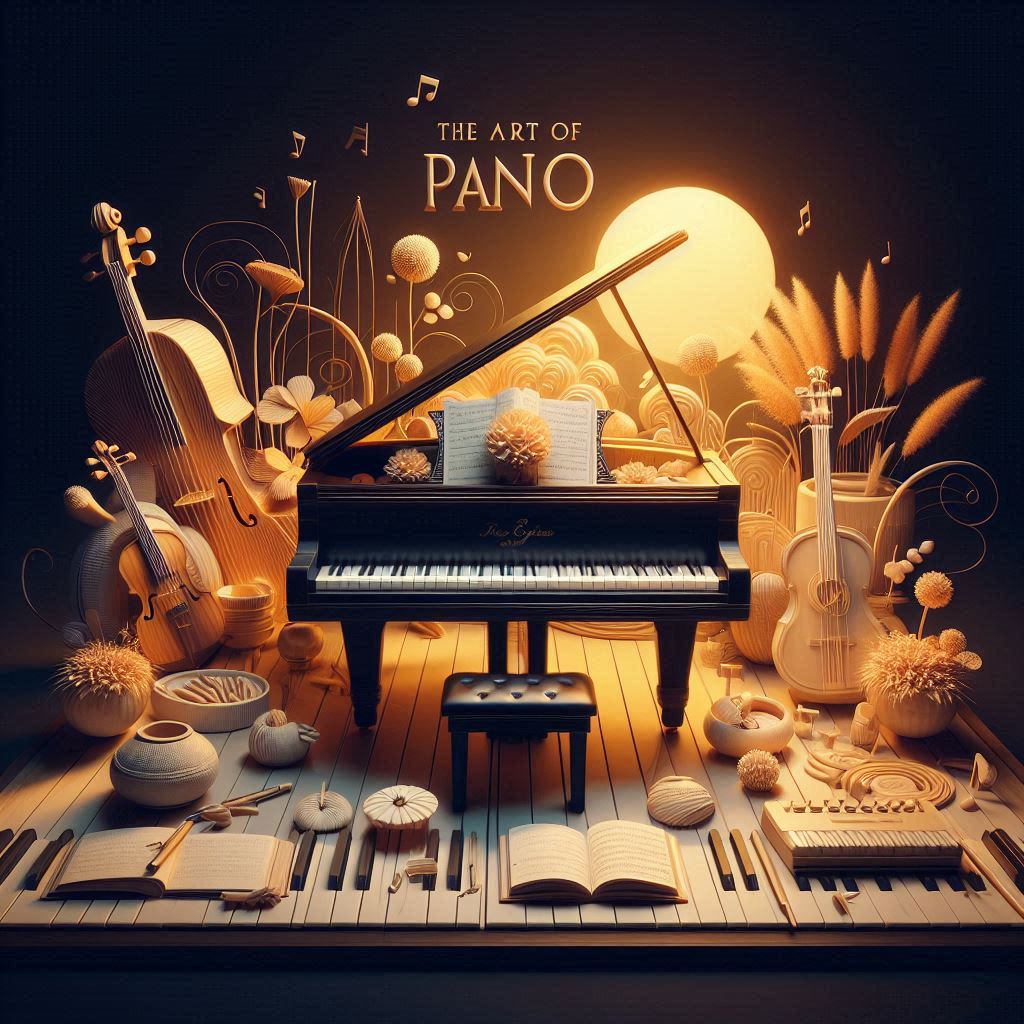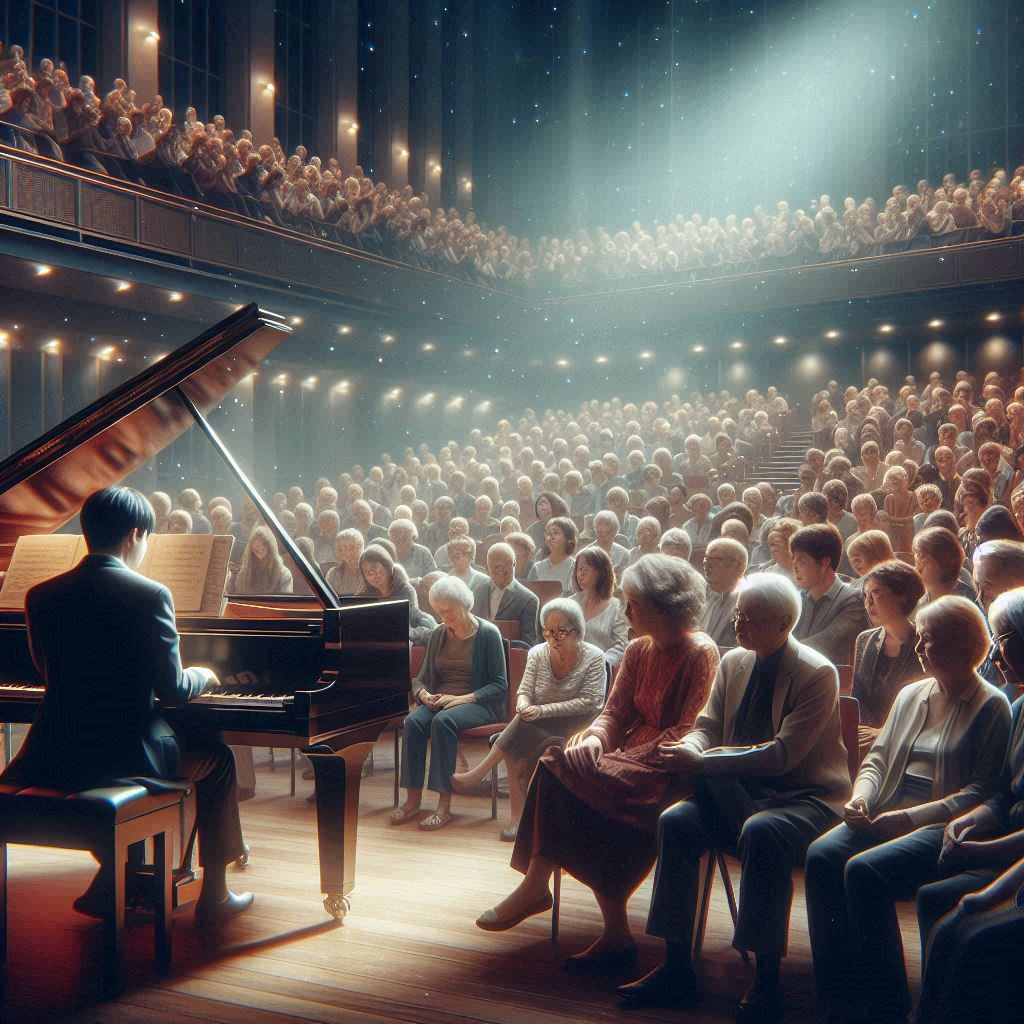Introduction
Technology has revolutionized the world of singing, transforming how we record, produce, and enhance vocal performances. From auto-tune and digital audio workstations to virtual reality concerts and social media, modern technology has profoundly impacted the music industry. This blog explores the role of technology in modern singing, highlighting its benefits, challenges, and future potential.
1. Advancements in Recording Technology
Digital Audio Workstations (DAWs)
Digital Audio Workstations (DAWs) have revolutionized the recording process, providing singers with powerful tools to record, edit, and produce their music.
Example:
- Pro Tools, Logic Pro, and Ableton Live: These DAWs offer features like multi-track recording, non-destructive editing, and a vast array of virtual instruments and effects.
High-Quality Home Recording
Advancements in recording technology have made it possible for singers to create high-quality recordings from home studios.
Example:
- USB Microphones and Audio Interfaces: Affordable, high-quality recording equipment allows singers to capture professional-sounding vocals without needing a commercial studio.
Portable Recording Devices
Portable recording devices enable singers to record ideas and performances on the go, providing flexibility and convenience.
Example:
- Zoom Handy Recorders: These compact devices offer high-quality audio recording in a portable format, perfect for capturing inspiration anytime, anywhere.
2. Vocal Enhancement and Production Tools
Auto-Tune and Pitch Correction
Auto-tune and pitch correction software have become ubiquitous in modern music production, allowing singers to achieve perfect pitch and explore creative vocal effects.
Example:
- Antares Auto-Tune: Used for both subtle pitch correction and creative effects, auto-tune has become a staple in pop, hip-hop, and electronic music.
Vocal Effects and Plugins
A wide range of vocal effects and plugins are available to enhance and transform vocal performances, from reverb and delay to more experimental sounds.
Example:
- Waves Vocal Rider and FabFilter Pro-Q 3: These plugins offer dynamic processing, EQ, and other effects to polish and perfect vocal tracks.
Harmonizers and Vocoders
Harmonizers and vocoders allow singers to create rich, layered harmonies and robotic, synthesized vocal effects.
Example:
- TC Helicon VoiceLive and Roland VP-03: These tools enable singers to add harmonies and vocoder effects in real-time, enhancing live performances and recordings.
3. The Impact of Social Media and Streaming Platforms
Global Reach and Exposure
Social media and streaming platforms have democratized the music industry, allowing singers to reach a global audience without needing a traditional record deal.
Example:
- YouTube, Instagram, and TikTok: Singers can share their music, engage with fans, and build a following on these platforms, often leading to viral success.
Direct Fan Interaction
Social media enables direct interaction between singers and their fans, fostering a sense of community and engagement.
Example:
- Live Streams and Q&A Sessions: Singers can connect with fans in real-time, sharing behind-the-scenes content and answering questions.
Data Analytics
Streaming platforms provide valuable data analytics, helping singers understand their audience and tailor their content for maximum impact.
Example:
- Spotify for Artists: This platform offers insights into listener demographics, geographic locations, and listening habits, allowing singers to make informed decisions about their music.
4. Virtual Reality and Augmented Reality in Music
Virtual Concerts
Virtual reality (VR) and augmented reality (AR) have opened new possibilities for live performances, allowing singers to create immersive, interactive concert experiences.
Example:
- VR Concerts and Holographic Performances: Artists like Travis Scott and Billie Eilish have experimented with VR and AR to deliver unique, immersive live shows.
Interactive Music Videos
AR technology enables the creation of interactive music videos, offering fans a more engaging and personalized viewing experience.
Example:
- AR Music Videos: Apps like Snapchat and Instagram offer AR filters and effects that fans can use to interact with music videos in real-time.
5. The Future of Singing Technology
AI and Machine Learning
Artificial intelligence (AI) and machine learning are poised to revolutionize singing and music production, offering new tools for composition, vocal synthesis, and personalized learning.
Example:
- AI Composers and Vocal Synths: Platforms like Amper Music and AI-powered vocal synthesis software can generate music and realistic vocal performances.
Advanced Vocal Training Tools
Technology is also enhancing vocal training, with apps and software that provide real-time feedback and personalized practice plans.
Example:
- Vocal Coach Apps: Apps like Singscope and Vocalizzo offer pitch tracking, exercises, and feedback to help singers improve their technique.
Blockchain and Music Distribution
Blockchain technology promises to transform music distribution, providing transparent, decentralized platforms for royalty tracking and direct fan-to-artist transactions.
Example:
- Audius: A decentralized music streaming platform that uses blockchain to ensure artists receive fair compensation and retain control over their music.
FAQs
How has technology changed the way singers record music?
Technology has revolutionized recording by making high-quality home recording accessible through digital audio workstations, affordable microphones, and portable recording devices.
What role does auto-tune play in modern singing?
Auto-tune and pitch correction software are used for both subtle pitch adjustments and creative vocal effects, becoming a staple in many genres of modern music.
How do social media and streaming platforms benefit singers?
Social media and streaming platforms provide global reach, direct fan interaction, and valuable data analytics, helping singers build their audience and tailor their content.
What are virtual reality and augmented reality bringing to live music performances?
VR and AR enable immersive, interactive concert experiences and interactive music videos, offering fans a more engaging and personalized way to experience music.
How might AI and machine learning impact the future of singing?
AI and machine learning will offer new tools for music composition, vocal synthesis, and personalized vocal training, potentially revolutionizing how singers create and improve their music.
What is the potential impact of blockchain technology on music distribution?
Blockchain technology can provide transparent, decentralized platforms for royalty tracking and direct transactions, ensuring fair compensation and control for artists.
Conclusion
Technology has profoundly impacted modern singing, transforming recording, production, and performance. From digital audio workstations and vocal enhancement tools to social media and virtual reality, technological advancements have opened up new possibilities for singers to create, share, and perform music. As we look to the future, innovations like AI and blockchain promise to further revolutionize the music industry, offering exciting opportunities for artists and fans alike. Embrace these technological advancements and explore the limitless potential they bring to your singing journey.



